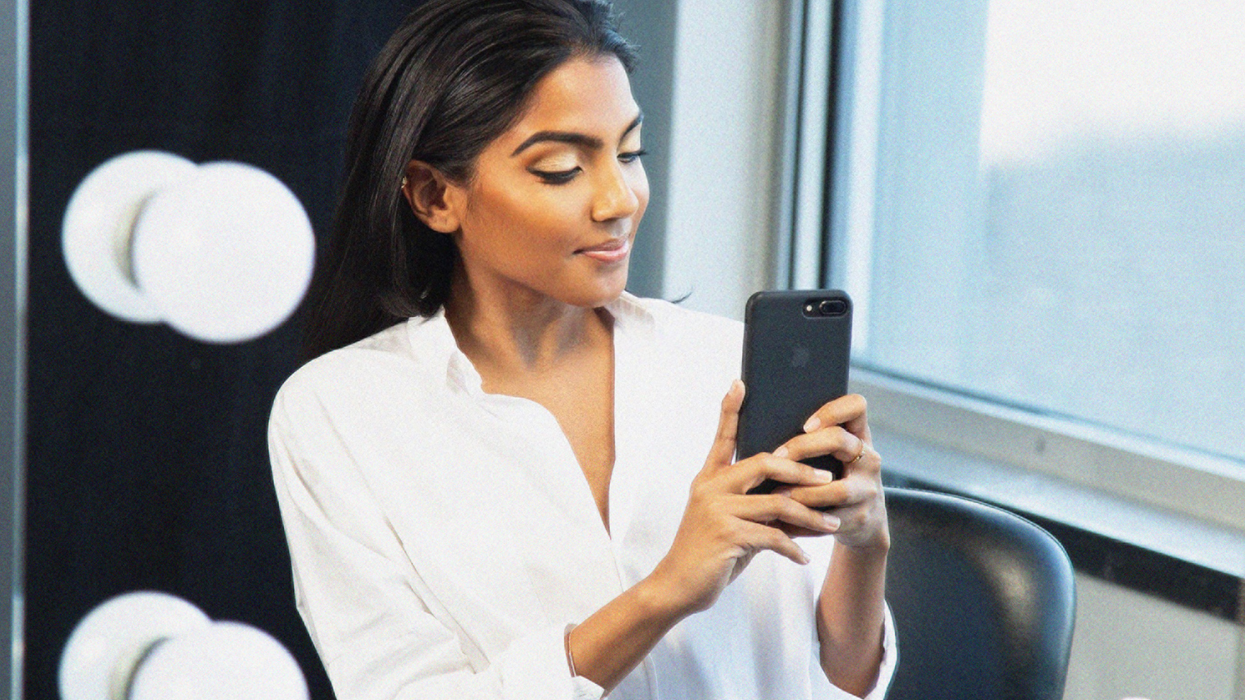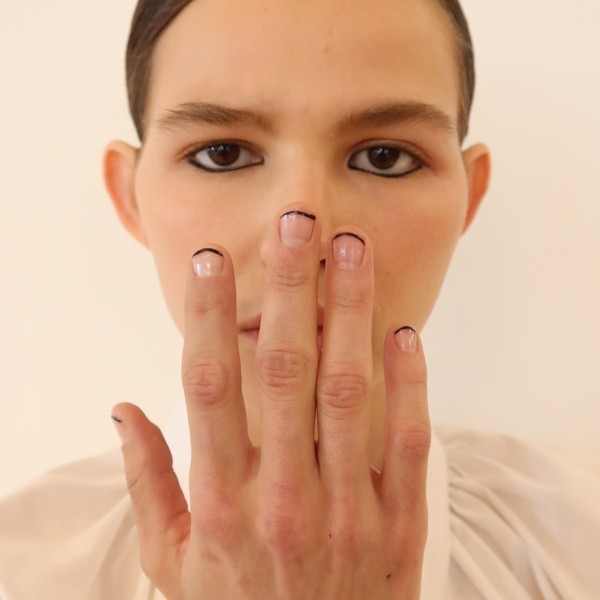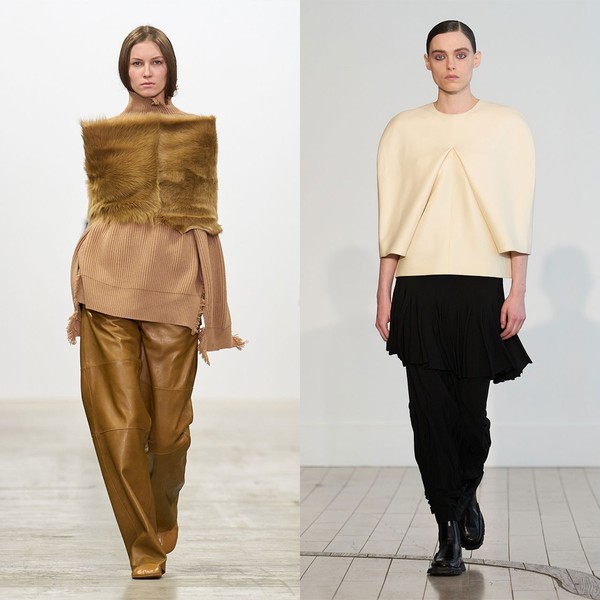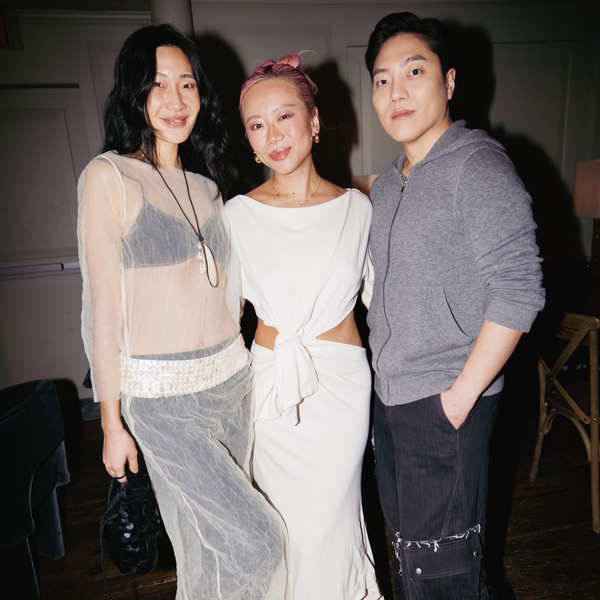How This Former Political Strategist is Opting Out of “Hustle Culture”
“I’m learning to be okay with not constantly producing, putting things into the world, and holding myself to unfair timelines.”

Welcome to The Simple Things, a wellness series dedicated to the routines and rituals that bring a sense of well-being to our daily lives. As the name implies, sometimes it’s not about making seismic shifts in our day-to-day—simple actions can be just as impactful for ourselves and for those in our community. This week, we’re chatting with Zara Rahim—a communications strategist who has previously held positions at The White House, Vogue, and Uber—about defining herself outside of her professional identity, learning to give herself grace, and more.
I was reading an interview you did when you were 22 where you said, "One lesson I've already learned is [that] it's so important to balance life and work. Don't forget to take care of yourself and don't forget the people who have helped you get where you are. During the campaign working almost eclipsed every other aspect of my life, particularly my social life. I can't stress enough how important it is to take care of your health and keep in regular contact with those you love".
Now, almost a decade later, what do you think about the 22-year-old you who said this, and did you take this lesson to heart in the years that followed?
“I can't believe it's been a decade, first of all. Second of all, I think there's so much that I didn't know, and I think that at the time I was probably projecting and saying things that I wished I was more diligent or cognizant of for myself.
“At the time I was healing from a really sad breakup, and I think I looked around me and I sort of realized that I had put so much energy and effort into my job and my relationship, then when those two things disappeared I wasn't certain who I was anymore. And I certainly don't think that I figured it out for quite some time after that. But I still believe those things to be true. I actively practice that and feel that way now. One thing that's been interesting for me throughout the last decade is I've been thinking so much about myself and my value, how I've attached that to my professional identity, and how much that obscured me from really sitting with Zara, you know what I mean?
“I've had a successful career in carrying other people's water. And I'm really good at it, I'm really good at showing up for people. I think there was a point in my life where I started asking myself who I was. If this all disappears tomorrow, what does this mean? What do I stand for? What do I believe? And when you’re working in politics and communications, you're responsible for conveying somebody else's message, whether it's a person or a brand, or a policy. I've been thinking a lot about what my own message is and figuring that out slowly but surely.”
What does that process look like?
“Oh gosh, it's [about having] a lot of grace and patience with myself. It's [about] not being so hard on myself about certain expectations and realities that I think were deeply important to me before. This is such a silly thing, but I’ve accepted that it is okay to unlearn things and that it is okay for me to hold myself accountable for the choices I've made. We're in this rat race of life where we're a part of institutions that maybe and probably might not age well. And it's okay for me to be like, here's what I learned about myself in that situation, and not take my time and association with work so seriously.
“So, the process involved simple things like asking myself what it looked like for me to not introduce myself using any of my work experience? That was hard. It's such a difficult exercise for career women particularly. And I think I'm still struggling with that. People ask me, what do you do for work? And I'll think, oh god, that's the question that makes me squirm. I say that from a place of both privilege and pain where I realize that I’m an incredibly successful person. I'm very smart, and I've accomplished a lot. I've worked with some of the most prolific people and brands, and I've been in incredible rooms and I belonged in those rooms, period. But if I had to sit with myself and challenge myself to show up without any of that mattering, what did I want to say? I'm still figuring that out. I'm not certain I have the answer yet, but I think for me, the pandemic opened up mental and emotional space for me to be like, hey, my opinions can change and my perspective can change and I can grow. It’s a humbling thing that a lot of people have trouble with, which I think leads us to so much of the terrible discourse that we all are privy to every day.”
I feel like it can be really easy for someone who is self-employed to feel like they should always be working since they don’t have the security that comes with a salary. How do you balance continuing to build your career while still putting your well-being first?
“I'm figuring it out. Days are hard. I think the pandemic was an incredibly traumatic experience for so many of us and rocked our identities. I was so used to going into an office and having events to go to and being obligated to be in physical spaces. I think when that expectation disappeared, situationally you sort of retreated to the most infantile version of yourself where you're like, wait, yes, we got up every day and we commuted to work, and we'd be there by a certain hour, but now it's like, who's going to make me breakfast? Oh right, me. There's no obligation to be somewhere so you have to draw that willpower out of yourself.
“Now I’m able to consult and work with a bunch of different clients and my value isn't attached to the grind of working for a single entity during specific hours; I get to check in and check out. It allows me to be like, okay, I've spent this time on this call, I've done this, I've shown up. I'm very detached in a healthy way. It has also allowed me to enjoy the things that I enjoy, like spending time in my kitchen and watching TV, and doing things that are so simplistic but feel healing for me at a core level. When I'm in my kitchen and when I'm cooking, I feel close to my mom. My mom is an incredible cook and chef, and I don't get to spend a lot of time with her, but when I'm in the kitchen I feel this obligation to preserve this legacy in our family by learning to cook.
“It's also a ritual for me to be able to make my home a home, be settled, and focus on things that were not realities for me either growing up or working when I was moving from Florida to DC to San Francisco to LA to New York. I get to just be domestic and that's beautiful.”
Do you have any other rituals that this flexibility has opened up space for?
“I think that not having something to do all the time has felt so freeing. In my professional life and even just my life in general, there was always something happening. There's always somewhere to be. I was constantly moving. Now I get to figure out how I want to move throughout the day. I’m learning to be okay with not constantly producing, putting things into the world, and holding myself to unfair timelines.”
When you were younger, did you imagine that you'd create this life for yourself?
“Oh my god, no. It's almost hard for me to talk about, especially as a first-generation child of the nineties. My parents are working-class people to this day and they're the most incredible, sacrificial, best people in the world who are also complicated. I know they did the best that they could [when I was growing up]. There is a lot of guilt that comes with success that I don't think that we talk about enough. Especially as brown and Black folks who come from immigrant backgrounds where it almost feels like an act of betrayal to have nice things for yourself and aspire to a level of professional success where you're having hard realizations about the fact that you might be making an income in a year that your parents probably didn't make in four years at a point in their lives.
“I certainly never imagined this for myself. As a child, I knew that I was smart, and I think everybody around me did. But I think I struggled at a certain point in my life to see myself beyond my hometown. I revealed so much to myself by jumping into an opportunity that I didn't really think much about. That served me well in my twenties, not thinking too hard about the thing I was signing up for. I was just like, yes, let's do it.
“Still to this day, it’s an exercise for me to continue to accept where my life is and not think that it's all going to be ripped out from underneath me. Because so much power is taken from us in socioeconomic, racial, and any sort of ethnocentric circumstances. The way we take our power back in capitalist settings is by doing really well in the workforce. So, what does it look like for us to decouple those things? It’s something I'm thinking a lot about.”




